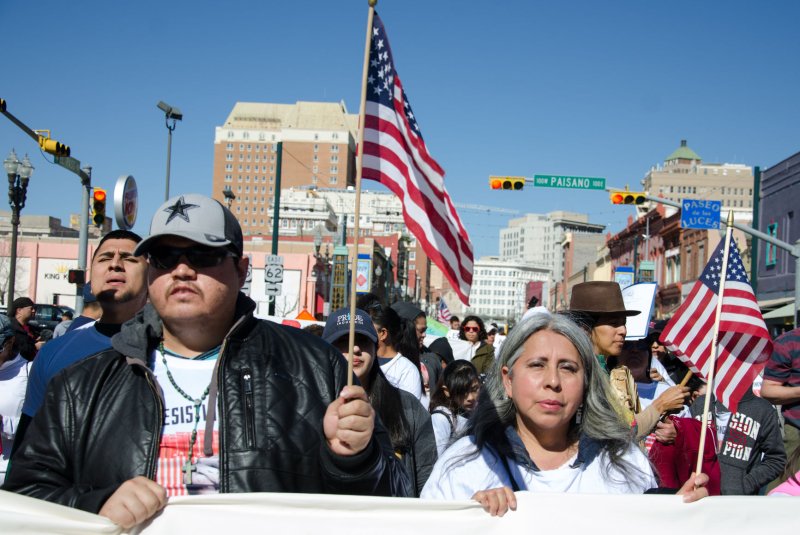Demonstrators protest President Donald Trump's immigration policies in El Paso, Texas, on January 26. File Photo by Natalie Krebs/UPI |
License Photo
Jan. 8 (UPI) -- A federal appeals court in New York on Wednesday upheld an injunction against a Trump administration rule allowing the government to reject green card and visa applications based on migrants' welfare use.
The three-judge panel of the 2nd U.S. Circuit Court of Appeals left the injunction in place, blocking the administration's plan to implement the so-called "public charge" rule. The rule was created in the 1800s as a way to deny immigrants entry to the United States if they were likely to become a drain on the economy.
U.S. Citizenship and Immigration Services announced the rule change to enforce the "public charge" rule in August. UCIS Acting Director Ken Cuccinelli said the rule would benefit both taxpayers and immigrants -- by cutting out the number of migrants receiving federal assistance, and allowing others to "stand on their own two feet" without reliance on a "welfare state."
A number of lawsuits said the Trump administration didn't have the authority to expand who could be affected by the rule. Critics also said it would disproportionately affect low-income migrants.
"The administration's new, racially motivated wealth test that they are trying to implement with the public charge statute is contrary to federal law and we'll continue to vigorously advocate and vigorously litigate those cases throughout the country," said Nicholas Espiritu, an attorney with the National Immigration Law Center.
In October, President Donald Trump also issued a proclamation restricting the entry of migrants deemed to be a financial "burden" on the U.S. healthcare system.
The White House said it will consider migrants to be a burden if they aren't covered by approved health insurance within 30 days of entering the United States or don't have the financial resources to cover "reasonably foreseeable medical costs."
The Trump administration said uncompensated healthcare costs at U.S. hospitals exceeded $35 billion each of the past 10 years.















